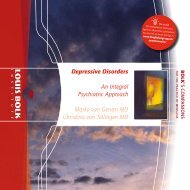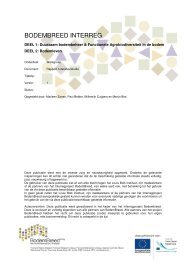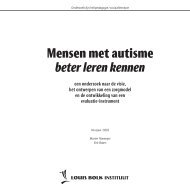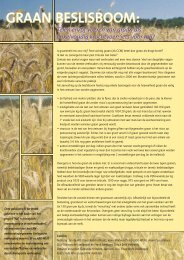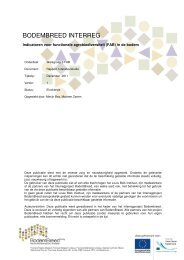Respiratory System Disorders and Therapy From a New - Louis Bolk ...
Respiratory System Disorders and Therapy From a New - Louis Bolk ...
Respiratory System Disorders and Therapy From a New - Louis Bolk ...
Create successful ePaper yourself
Turn your PDF publications into a flip-book with our unique Google optimized e-Paper software.
developed acute asthma attacks as a reaction to increased nerve-sensory activity — for<br />
instance, stress. We could call this a predisposition or constitutional tendency for asthma.<br />
That means that a person could manifest a predilection for a specific disease, based on the<br />
innate, often inherited characteristics of the build <strong>and</strong> functional activity of their organism:<br />
people have a predisposition for illness based on their constitution. The description <strong>and</strong><br />
characterization of a person’s constitution is one method that can be used to indicate<br />
the relative preponderance of certain functional areas in a human being. In our asthma<br />
patients we discovered a prevailing influence of consolidating nerve-sensory processes.<br />
The innate dominance of one specific functional activity creates a certain one-sidedness or<br />
imbalance within the organism. People are never completely harmonious <strong>and</strong> we all have<br />
our own predisposition for illness. Such an imbalance, however, has two consequences.<br />
Next to instigating a specific predisposition for illness, the person in question also possesses<br />
specific qualities as a result of the imbalance, such as the ability to pursue a set goal in<br />
the second patient. Imbalance has, therefore, both a positive <strong>and</strong> a negative side. The<br />
physician will usually be confronted first with the negative aspects of constitution in the<br />
form of the susceptibility for illness or actual disease.<br />
Using the concept of constitution, we may approach innate tendencies for illness<br />
preventively. If, nevertheless, a period of illness occurs, then a treatment strategy can be<br />
developed that is also based on the constitution of the patient.<br />
The patient’s constitution plays a leading role when the course of illness is chronic.<br />
Typologies in Medicine<br />
In the history of medicine, we find numerous attempts to describe <strong>and</strong><br />
clarify constitutional imbalance as described here. Well-known historical<br />
examples are the typologies as were developed by Schiller (Formtrieb/<br />
Spieltrieb/Stofftrieb), Kretschmer (leptosome/athletic/eurysome), Sheldon<br />
(ectomorphic/mesomorphic/endomorphic), Sigeaud (type cerebral/type<br />
respiratoir/type digestive), <strong>and</strong> Steiner (nerve-sensory type/rhythmic type/<br />
metabolic-limbs type).



